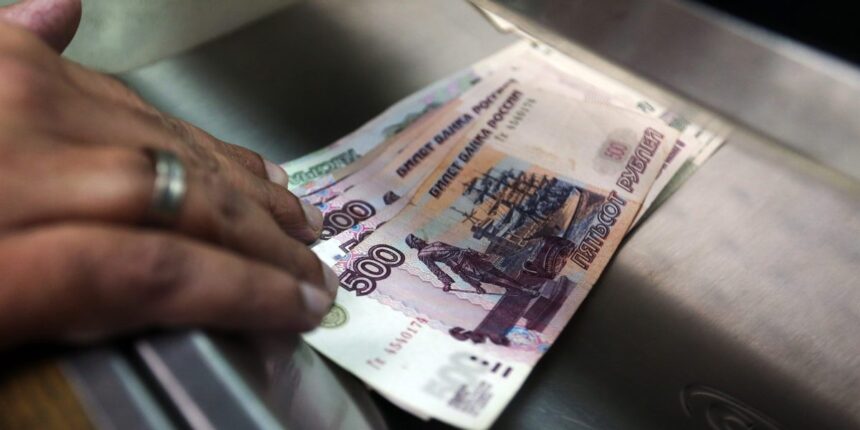
The rouble gained against the U.S. dollar on Thursday after Russian President Vladimir Putin moved to reintroduce currency controls in an effort to salvage his nation’s tumbling currency.
The Bank of Russia has endorsed the move, according to Reuters, after months of pushing back and favoring instead the adoption of higher interest rates to curb the rouble’s devaluation. It said the measures could prop up the fluctuating currency and improve liquidity.
Putin signed a decree Wednesday meant for Russian export companies—43 of them in total across energy, agriculture, and other sectors—to sell some of their foreign currency revenues on domestic markets in exchange for roubles to help bolster Russia’s currency.
“The main purpose of these measures is to create long-term conditions for increasing the transparency and predictability of the currency market, [and] to reduce the opportunity for currency speculation,” the Russian First Deputy Prime Minister Andrei Belousov said in a statement, CNN reported.
The move has helped the rouble inch up against the U.S. dollar by roughly 4%, hitting a two-week high. But the currency remains significantly lower—about 23% down this year.
The rouble trouble started shortly after Russia invaded Ukraine last February, which prompting a slew of Western sanctions ultimately resulting in an all-time low of 120 roubles against the U.S. dollar. At that time, the Kremlin also introduced capital controls, making exporters exchange at least 80% of foreign currency revenues in the form of U.S. dollars, euros or other currencies, for roubles. Three months later, the threshold was dropped to 50% before it was scratched altogether.
Russia policymakers have been on edge as the currency neared the psychological threshold of 100 roubles to a dollar last week. The rouble actually crossed that barrier in August, sparking an emergency central bank meeting, a series of rate hikes amounting to 550 basis points, and a decision to halt foreign currency purchases on the domestic markets over the following months.
Despite the Kremlin’s efforts to shore up the rouble, the currency continues to remain under pressure due to capital outflows and poor exports. Putin has acknowledged the pressures amid soaring inflation.
But some experts see this measure as a possible path to the rouble regaining some of its strength relative to the dollar.
“If the parameters of our export goods remain the same … some more strengthening is possible,” Herman Gerf, CEO of Russian lender Sberbank said, according to TASS news agency, Reuters reported. “The regular, fundamental exchange rate today is 85-90 per dollar.”








